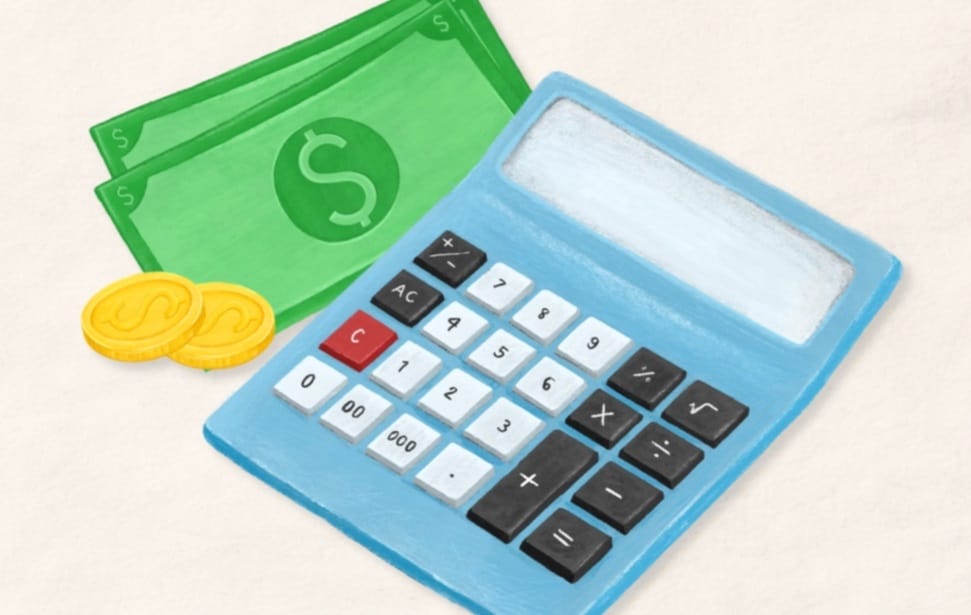Should you pay off debt or save?
So, you want to get started on debt repayment so you can focus on other financial goals? However, if you pay off these debts, there will be nothing left for investments in these tough financial times. You are one emergency short of losing track of your finances. What gives?
If you are confused about whether you should pay off debt or save, you are not alone, although everyone’s financial situation is different. Fortunately, it doesn’t have to be an either/ or predicament anymore; you can do both successfully. The right move depends on your specific circumstances.
Should you pay off debt or save? We’ll start by considering each option separately.
Advantages of Paying Off Debt
From a purely financial point of view, it makes more sense to focus on debt payoff rather than directing available cash to a savings account.
From a personal point of view, I much prefer living debt free. Before I took up my Financial Reboot journey, I was more focused on growing my savings accounts as opposed to paying off debt first. The problem is, every time I sent money to my savings account, I would mentally think about how much that amount would have reduced my debt.
It got to a point where my savings weren’t mentally registering as my savings but as my potential debt reduction. Say for example, if I put $500 away this month but still had $9,000 in debt, I would immediately think, I potentially only owe $8,500 but have $0 in savings.
Eventually, I decided to focus on debt reduction first and then savings once I was done with the debts. It’s a dangerous game to play because we always need savings, but my mind just wouldn’t let it be. Doing this actually gave me the peace of mind that I needed to focus on my financial goals. And there are tons of other benefits as well.
Saving on Interest
You will be decreasing your debt as well as the amount you’ll pay in interest over time, which is a good thing. It reduces the overall time that the interest will accrue as well as the balance on which it is calculated. The saving potential is higher for longer-term loans with high interest rates. High interest charges make it harder to put money aside for saving.
Improving Your Future Borrowing Terms
Paying off your existing loans improves your odds of getting other facilities under better terms. The lender will be more confident and willing to extend another facility because you are a responsible borrower. Your positive credit report will encourage other lenders to grant similar facilities.
Your risk profile goes down as you are no longer a first-time borrower, and your debt-to-income ratio goes down along with your credit utilization rate. This allows you to negotiate better loan terms, increasing your borrowing capacity.
Peace of Mind
There is a sense of financial freedom that comes with the reduction of the burden on your income. You will also have more disposable income to devote to your other financial goals.
Saving Through Paying Off Debt
Once you pay off the debt, you can begin to earn interest income on the money you would have spent each month on debt payments. This makes it easier to save money, invest for a more long-term financial goal, and even add to your retirement savings.
Also See: How to Save Money From Salary Without Sacrificing Your Lifestyle
Drawbacks of Paying Off Debt With Limited Resources
As unbelievable as it might be, paying off your debts has some disadvantages.
The Opportunity Cost
The potential for higher returns from possible investments that you will be forced to forego. This is why you should pay off your high-interest debts like credit cards first.
When Your Loan Terms Include Prepayment Penalties
Before you decide to pay off the loan early, you should review your loan contract with a fine tooth comb. Hidden in the terms might be clauses with penalties for early repayment. They are included to discourage you from settling early so that the lender can recoup some of the anticipated interest, even when you don’t go the full term.
If there is such a clause, you should compare the amount payable to what you are about to save from interest to determine if paying off the debt is an overall gain or loss.
Advantages of Saving Despite Debts
Building an Emergency Fund

The best way to get out of existing debt when your credit card balances are high is to stop charging them and live within your limits as you pay them down. This is hard to sustain without an emergency savings fund, which offers a cheaper alternative to charging the card.
Before you start paying off multiple debts, come up with an emergency savings goal to cover unexpected events. I would recommend that you have at least six months to a year’s worth of your monthly expenses saved in the event of a job loss or an unexpected emergency.
Taking Advantage of Investment Opportunities
Saving allows you to invest without incurring facilitation fees or taking up credit facilities that will ultimately eat into your personal finance returns. This means you earn more than if you were to source for funds from a third party.
Limitations of Saving With Unpaid Debt
It is unlikely that you will earn as much interest on your savings if you have to pay interest on your expensive debt. Look at how much interest you are paying on your short-term debts. If the interest outweighs the savings interest, you are better off paying the expensive debt first. You don’t want to discover you are operating at a net loss when it’s too late.
Balancing Between Paying Off Debt and Saving
My personal approach is to do both concurrently; save for my goals while repaying my loans on time. However, with limited funds to work with, you may have to choose between the two every once in a while and work out a balance the rest of the time.
A lower debt balance saves you money in the form of interest while saving gives you control over your investments. It’s a question of how to ensure the gains outweigh the losses.
Wiping out high-interest debt on a timely basis will reduce the amount of total interest you’ll pay eventually while freeing up money in your budget for other uses. On the other hand, if your savings are depleted in the process, you may end up with more credit card debt if you are hit with unplanned expenses.
When the debts are too expensive, they might prevent you from making any headway with the savings. You will need to handle them first, even if your emergency fund is nonexistent.
Start by taking note of the interest you are paying on all your loans and prioritize them for payment, starting with the most expensive. Try to cover at least the minimum monthly payment on all your loans so that you don’t incur charges and penalties.
Keep in mind that if you only pay the minimum monthly payment on your credit cards, you will just be preventing the existing debt from increasing, but the balance will not go down significantly. If you want to make an actual impact, you have to pay a little more than the minimum.
When this is handled, which doesn’t necessarily have to wait for you to be debt-free, you can shift your focus back to your three- to six-month emergency fund.
Some debts like mortgages and personal loans don’t need to be paid off straight away. High-interest debt like credit and store cards, unauthorized overdrafts, catalog shopping, and private student loans should be the first to go.
Start considering investment strategies as you pay off your debt. You need savings for emergencies, investments, and to get out of debt.
Bottom Line?
In a nutshell, it makes sense to pay off your expensive loans if your borrowing expenses outweigh what you are getting as interest on your savings. It is also good practice to ensure you have access to emergency funds, which range from three to six months’ earnings, that will not incur charges before you decide to go down this road.
When it comes to the optimum application of your earnings between debt payment and saving, every household has unique requirements, so I won’t pretend to have a universally applicable ratio. You will have to look at your financial circumstances to come up with the right balance.
